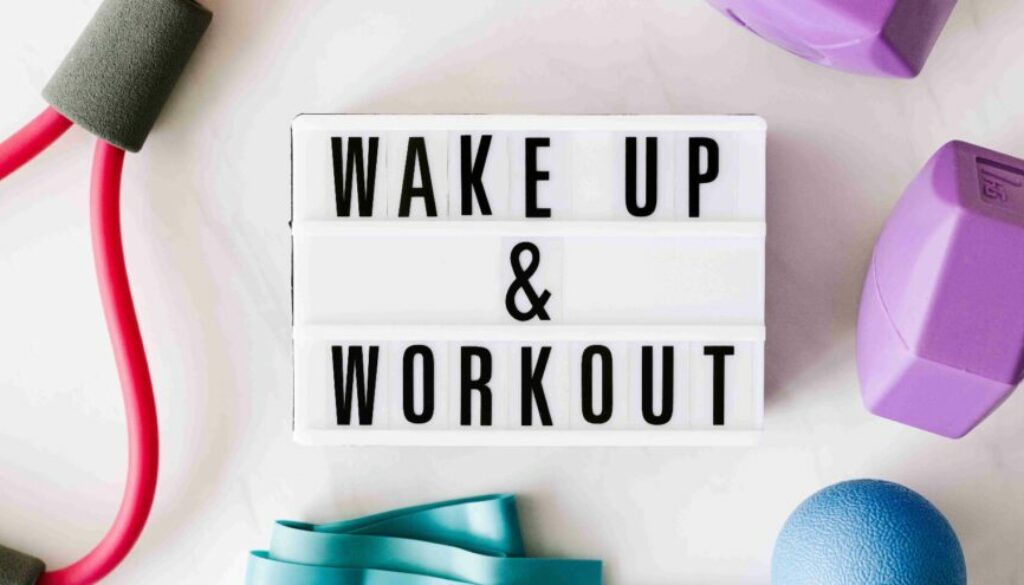What is Body Composition 101| A Comprehensive Guide for You
Identify and understand all about body composition in this comprehensive guide. Discover the importance of maintaining a healthy balance between fat and lean mass, how to measure it, and why it matters for your overall fitness and well-being.
As a fitness expert, one of the fundamental concepts that I often discuss with my clients is “body composition.” Understanding body composition is crucial on your journey to achieving your fitness goals. In this comprehensive guide, we’ll delve deep into what body composition is, why it matters, how to measure it, and how you can optimize it for a healthier and fitter you.
What is Body Composition?
Body composition refers to the ratio of different components that make up your body, primarily fat mass and lean mass. Fat mass includes both essential fat, necessary for normal physiological functions, and non-essential fat, which is the excess fat stored in adipose tissue. Lean mass consists of muscles, bones, organs, and tissues.
Achieving the right balance between these components is essential for your overall health and fitness. Let’s explore this concept further.
Why Does Body Composition Matter?
Your body composition plays an important role in your overall well-being. Below are several significant reasons why it holds importance:
Health and Disease Risk:
Excess body fat, especially around the abdominal area, is associated with an increased risk of various health conditions, including heart disease, type 2 diabetes, and hypertension. Understanding and managing your body composition can help reduce these risks.

Fitness and Performance:
Lean muscle mass is essential for strength, agility, and overall physical performance. Whether you’re an athlete or just someone looking to stay active, optimizing your body composition can enhance your fitness level.
Metabolic Rate:
Muscles are active tissues, indicating that they expend more energy even when the body is at rest, as opposed to fat. By increasing your lean muscle mass, you can boost your metabolism and make it easier to maintain or lose weight.
Body Image and Confidence:
Body image and confidence are closely connected in the context of body composition. How you perceive your body can significantly impact your self-esteem and overall well-being. When you work on achieving a balanced body composition, you improve your physical health as well as boost your self-confidence. Feeling good about your body can positively affect your mental state, helping you approach life with greater positivity and stamina.

Remember, confidence comes from embracing your uniqueness and appreciating the progress you make on your fitness journey. It’s about feeling strong, healthy, and comfortable in your skin. It is a powerful motivator.
How to Measure Body Composition
Several methods are available to measure body composition, each with varying levels of accuracy and accessibility:
Bioelectrical Impedance Analysis (BIA)
BIA devices measure body structure by sending a low electrical current through your body. While it’s convenient and non-invasive, results can fluctuate based on factors like hydration levels.

Skin fold Calipers
Skin fold measurements involve using calipers to pinch and measure the thickness of skin folds at specific sites on your body. This method provides a rough estimate of body fat percentage.
Dual-energy X-ray Absorptiometry (DXA)
DXA scans provide highly accurate measurements of bone density, lean mass, and fat mass. They are commonly used in research and clinical settings.
Hydrostatic Weighing
This method determines body density by submerging you in water. While accurate, it’s less practical for routine use.
A plethysmogram (Bod Pod)
Similar to hydrostatic weighing, the Bod Pod measures body density through air displacement. It’s more convenient than hydrostatic weighing but less accessible.
Infrared Interchange
Infrared devices estimate body composition by measuring the absorption and reflection of light as it passes through body tissues.
MRI and CT Scans
Medical imaging techniques provide detailed information about the physique but are typically reserved for clinical purposes.
Optimizing Your Body Composition
Now that you understand what body composition is and why it’s essential, let’s explore how you can work towards achieving a healthier balance:
-
Balanced Diet:
Nutrition plays a pivotal role in body composition. Focus on a well-rounded diet rich in lean protein, whole grains, fruits, vegetables, and healthy fats. Limit your intake of processed foods and sugars.
-
Regular Exercise:

Incorporate both cardio and strength training exercises into your fitness routine. Cardiovascular exercise aids in calorie burning, whereas strength training contributes to the development of lean muscle mass.
-
Hydration:
Stay adequately hydrated as it can impact BIA measurements. Drink plenty of water throughout the day.
-
Sleep and Stress Management:
Quality sleep and effective stress management techniques can positively affect your body composition by regulating hormones related to hunger and fat storage. You can see our complete blog post on having a quality sleep while stress disturbs your sleep. https://fitnessfrenzy.blog/quality-rest-when-stress-disturbs-sleep/
-
Monitor Progress:
Periodically track your body composition to assess your progress. Modify your dietary choices and exercise regimen as required. You can use any app for monitoring your routine.
Seek Professional Guidance:
Consider consulting with a fitness professional or registered dietitian who can provide personalized advice and guidance.
Body structure is a vital aspect of your overall health and fitness. By understanding what it is, why it matters, how to measure it, and how to optimize it, you can take significant steps toward achieving your fitness goals. Be mindful that your body composition is unique to you. So, focus on making sustainable, healthy choices that work for your individual needs and lifestyle.
